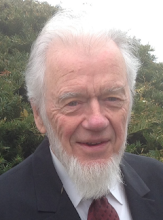I have long been a fan of Martin Luther King, Jr. I thrill every time I hear his “I Have a Dream” speech. I am moved whenever I read his writings, and I have just finished reading his powerful little book, Why We Can’t Wait (1963). But in light of all he did in 1963, I am somewhat embarrassed at what I didn’t do then.
I once had the opportunity of hearing King speak in person, but I was a bit disappointed. When I was a student at The Southern Baptist Theological Seminary in 1961, he came to Louisville and spoke in a regular chapel service at SBTS. It was a fine talk with excellent content, but it was not delivered with the oratorical power of many of his other sermons and speeches that I had heard snatches of. Thanks to the Internet, last week I was able to hear that chapel talk again. I probably enjoyed and appreciated hearing King’s talk more this time than I did back when I was a busy, and sleep-deprived, seminary student.
In Why We Can’t Wait, King tells what he was thinking about and how he was involved in “the Negro Revolution” of 1963. Much of that revolution then was centered in Birmingham, Alabama, where King was arrested and jailed on Good Friday of that year. Chapter 5 of his book is his remarkable “Letter from Birmingham Jail,” written on April 16.
Among the many important statements in that powerful letter, I was particularly impressed by these words: “I have almost reached the regrettable conclusion that the Negro’s great stumbling block in his stride toward freedom is not the White Citizen’s Counciler or the Ku Klux Klanner, but the white moderate, who is more devoted to ‘order’ than to justice; who prefers a negative peace which is the absence of tension to a positive peace which is the presence of justice” (pp. 72-73).
In April 1963, I was a full-time graduate student, a pastor, and a husband and father of two young children I was struggling to support financially. My plate was quite full. Still, as I look back to that time I am embarrassed not because of what I did but because of what I did not do. I was not completely uninvolved in the struggle for freedom and justice, but I did little to help those who were suffering from racism and racist-related poverty in the U.S. (or elsewhere).
During the Martin Luther King Day celebrations this year, I want to think deeply about what to do in response to his insightful words, “Injustice anywhere is a threat to justice everywhere. We are caught in an inescapable network of mutuality, tied in a single garment of destiny. Whatever affects one directly, affects all indirectly” (p. 65).

Your quote stated above by King 'injustice anywhere is a threat to justice everywhere' draws me to ask the question to ourselves and our communities of faith (I am assuming that those who are reading Leroy's blogs are a part of a faith community).
ReplyDeleteWhat are the areas of injustice that we should be standing for these days in our community and in the greater global community? I have my own ideas but I would rather hear from those who wish to answer.
After hearing the Word so eloquently spoken a half century ago by Dr. King, I am struck by how prophetic it remains today. Certainly our economy has reminded us what it is to be in a crisis, between a fading old order, and a rising new order. Military, economic, social, environmental, and, yes, even racial stresses bind our country, and many others. Much the same list Dr. King found the day he spoke.
ReplyDeleteYet some things have changed. When Senator Reid recently lost his scripted message, a black newspaper columnist, Eugene Robinson, had an opportunity to write in the Washington Post, explaining the difference between race and color. A black American President had an opportunity to accept Senator Reid's apology. A black chairman of the Republican National Committee had a chance to make political hay our of it. Those things could not happen 50 years ago.
Interestingly, Dr. King also entered our discussion about the nature of time. Like Dr. Cone, he definitely sees history going somewhere. Yet it is hardly "progress" as some in America's elite would have seen it. Perhaps we could borrow a strategy from the old Seven-Up commercials and call it the "Un-progress." Something like what Chris discussed in his last post.
Speaking of "last posts," CJM challenges us to define injustice. What are we to do? Any of us could list so many injustices that we could become paralyzed by depression. Any of us could listen to Dr. King and be convinced we can move mountains. What should be our strategy? I am going to use Dr. Cone's strategy and pass on the torch! Your turn.
Craig is right--again. Naming injustice is fraught with difficulties. I won't enumerate some that have occurred to me, but one that is on my mind is the distinction between categories that exist in nature and those that exist because of human civilization. Is there a force of justice that exists in nature? Of course, I'm thinking in terms of Darwinian evolution. If not, then the establishment of civilization stands over against nature, and categories like justice must endure against the tide of natural selection in order to succeed. Thoughts?
ReplyDelete